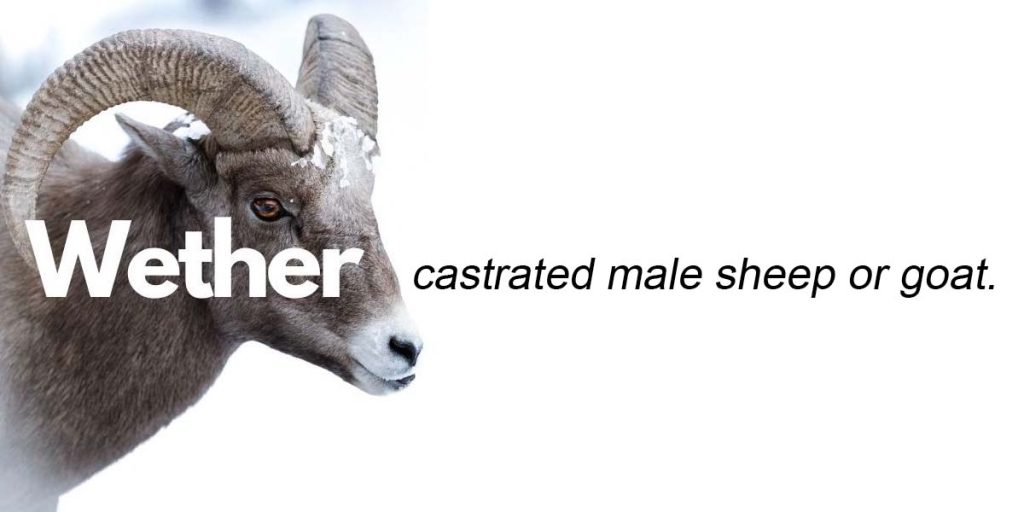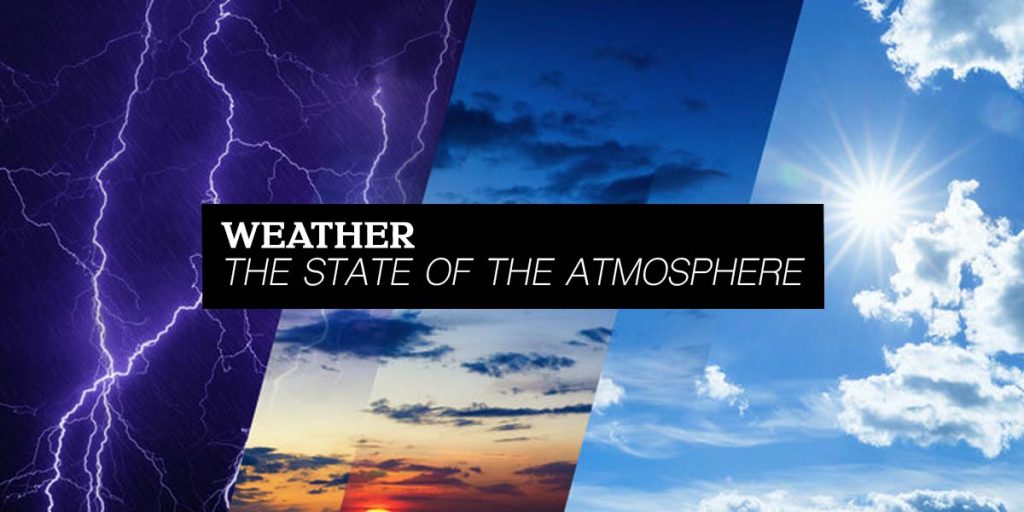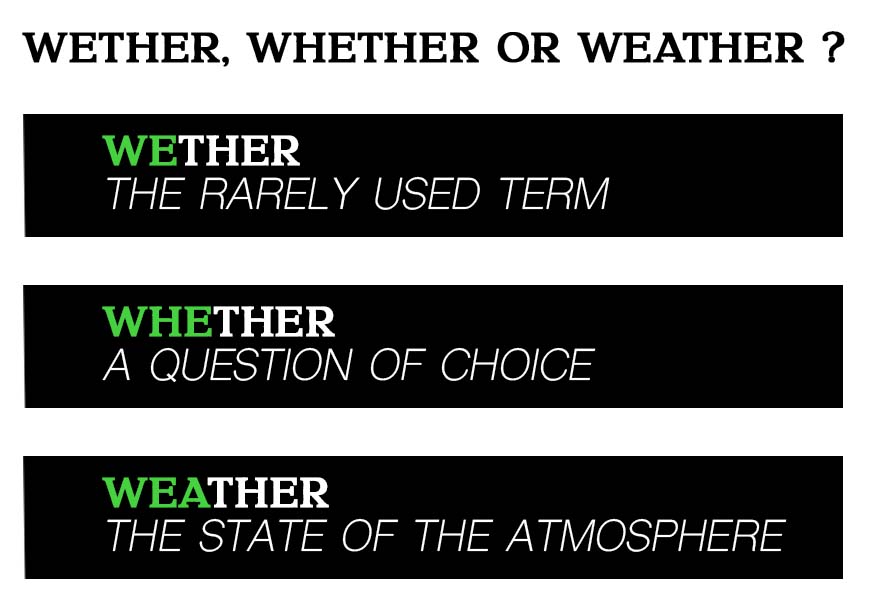English is a language rich in homophones—words that sound the same but have different meanings. Among these, “wether,” “whether,” and “weather” are often confused. This confusion is understandable given their similar pronunciation, but using them correctly can make a significant difference in your writing. In this article, we’ll clarify the meanings and uses of these three words.
Wether: The Rarely Used Term

Wether is the least commonly used of the three and might be unfamiliar to many. It refers to a castrated male sheep or goat. This term is primarily used in agriculture and is not something you’ll encounter in everyday conversation or writing unless you’re involved in farming or veterinary fields.
Example:
“The farmer took care of the wether before introducing it to the rest of the flock.”
Whether: A Question of Choice

Whether is a conjunction used to introduce alternatives or express doubt. It’s most commonly seen in conditional sentences where choices or possibilities are presented.
Example:
“I can’t decide whether to go to the party or stay home.”
Whether is also used in situations where two alternatives are not directly stated but implied, often followed by “or not.”
Example:
“She couldn’t tell whether it would rain.”
Weather: The State of the Atmosphere

Weather refers to the conditions of the atmosphere at a particular time and place, including factors like temperature, humidity, precipitation, and wind. It’s a noun and is commonly discussed in daily life, especially when planning activities.
Example:
“The weather today is perfect for a picnic.”
It’s also used as a verb, meaning to endure or come safely through a difficult situation.
Example:
“The company managed to weather the economic downturn.”
Tips to Remember the Difference
1. Wether: Think of sheep and farming. It’s a rare word you’ll likely only use in specific contexts.
2. Whether: Use it when considering options or possibilities. If you can replace it with “if” and the sentence still makes sense, “whether” is likely the correct choice.
3. Weather: This is all about climate and atmospheric conditions. If you’re talking about rain, sunshine, or storms, “weather” is the word you need.Common Mistakes and How to Avoid Them
• Mixing “weather” and “whether”: A common error is writing “weather” when you mean “whether.” Remember, “weather” relates to the atmosphere, while “whether” introduces alternatives.
• Using “wether” instead of “whether”: Given their similar sounds, “wether” might be mistakenly used in place of “whether.” Unless you’re talking about a castrated sheep, avoid using “wether.”Conclusion
Mastering the correct use of “wether,” “whether,” and “weather” is crucial for clear and precise communication. While “wether” is specialized and rarely used, “whether” and “weather” are common in everyday writing. Understanding the differences will help you avoid confusion and make your writing more professional. So, next time you’re unsure which word to use, think about sheep, choices, and the climate, and you’ll get it right every time!

